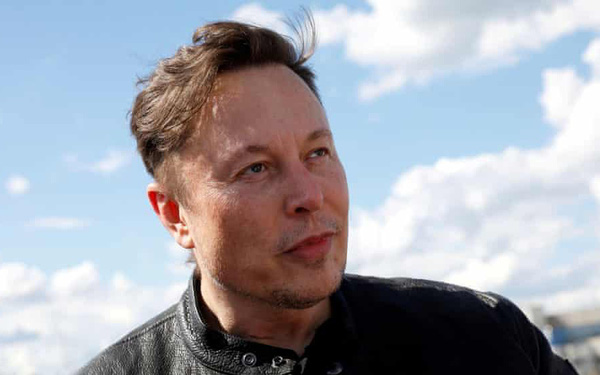Elon Musk constantly sells Tesla shares not only to pay taxes but because of lack of money?
- Tram Ho
Elon Musk’s sale of Tesla stock last week should come as no surprise to those following the story of his potential tax bill of $10 billion to $15 billion on stock options granted in 2012. However, according to accounting experts, most of the stock that Musk sells does not appear to be related to taxes alone. That means Musk is likely to sell more stock than expected.
The options on Musk’s 23 million shares expire in August, which is also the deadline for the tax bill issued by the state of California and the Internal Revenue Service. Musk began exercising options on November 8. He bought $2.5 billion in stock and sold $1.1 billion of those exercised options to pay taxes.

“Part of the common stock is sold solely to satisfy the reporter’s tax withholding obligations relating to the exercise of stock options,” a note in Musk’s Securities and Exchange Commission filing on 8/11 stated.
Then, on Monday, Musk sold another $930 million in stock to pay taxes on the options he exercised on 2.1 million shares. That brings the total number of options he exercised to about $4.6 billion and the value of the shares sold to meet the withholding obligation to $2 billion.
However, most of the stock sold last week was for another reason. Instead of selling as part of the option exercise, Musk started selling from all of his existing shares. Accounting experts say it would be impractical for Musk to use those existing shares to pay taxes on the exercise of his options, as they are subject to a much higher tax bill.
Musk options are taxed like ordinary income, because they’re considered compensation. The combined federal and California-specific tax rates can be as high as 54%. The actual price for the options was $6.24 per share, and Tesla’s share price on Monday was more than $1,160 a share. Thus, Musk will have to pay more than $ 10 billion in taxes when collecting more than $ 20 billion.
Typically, executives sell stocks as soon as they are purchased as options to pay taxes – an operation known as “cashless”. Since shares are sold immediately, no additional capital gains tax is payable on shares sold.
Because Musk’s stock sale starting 9/11 is a direct stock sale with little or no cost, he will owe up to $1.3 billion in long-term capital gains taxes. Using that proceeds to pay the option tax would be tantamount to paying the tax twice – once on the capital gains and once on the call option.
“It doesn’t make sense from a tax perspective,” said Toby Johnston, partner in the Silicon Valley office of Moss Adams, an accounting, consulting and wealth management firm.
So why is Musk selling non-options stock at a relatively high tax cost? Tax experts and Tesla analysts say he will still exercise options before August to increase his ownership of the company, even after taxes are paid. That means Musk still exercises the option, having to sell billions of dollars to pay taxes.
Experts rule out the possibility of Musk selling the stock to charity, as he would choose to give the stock away rather than sell it and pay taxes. He could use the proceeds for Space X or for another private business. Or Musk may simply want to cash in after years of being “stock-rich”, running short of cash and forced to take out a mortgage on his stock to pay for. A likely increase in federal taxes next year could also be an incentive for Musk to quickly want to sell shares.
Whatever the reason, Musk is likely to sell more than the $10 billion to $15 billion he needs for taxes. He ran a Twitter poll on Nov. 6 in which he asked his followers whether to sell 10% of Tesla stock. In the poll, 58% of those who responded said that Musk should sell.
“For people of Elon Musk’s stature, taxes aren’t always the main driver of investment decisions. I still have a feeling there’s something we don’t know yet,” Johnston said.
Source : Genk
